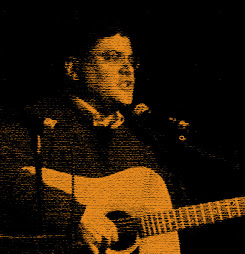
* * * * * * * * * *
Here are some thoughts penned by yours truly:
"Would he recognize his brother's face?" Jacob wondered as he prepared to reunite with Esau after twenty years of estrangement. So much water had gone under the bridge: The initial flight from Esau's anger at having lost both his birthright and blessing had led soon to a life of servitude to Laban, and a life of domesticity with Laban's daughter, first Leah then Rachel.
And now the moment had arrived. Esau was approaching with four hundred fighting men. Jacob had carefully arranged his flocks and herds to provide both protection and a peace offering to his brother. But would he recognize him? Twenty years is a long time. He imagined Esau's face contorted with anger over the sins of the past. But who knew? The eye of memory played tricks with facial features. It could not be trusted.
And suddenly Esau approached, no weapon in his hand, a growing smile on his face. It was him, thought Jacob. Different, but something in that face struck him, a note so familiar.
Pleasantries were exchanged: "Are these really all your kids?" "You've done well for yourself with all these flocks." Jacob insisted that Esau accept a token, a gift. "No I pray, do me this favor and accept this gift; for to see your face is like seeing the face of God, and you have received me favorably." (Genesis 33:10)
In that moment, Jacob understood. To see God's face in that of his brother's, recalled all that bound them together: their childhood, their parents, their humanity. Jacob understood that despite their differences, they were both created in God's image, and thus interdependent and fundamentally related. In that moment, Jacob's enemy vanished; in his place stood a friend.
* * * * * * * * * *
In these past weeks of renewed violence in Israel and Gaza, it's been hard to maintain any sense of hope that things might get better. The anger and disappointment are so profound there seems no room for improvement.
And while no can minimize the complexity of relationship between Arab and Jew in the Middle East - no one can lightly suggest the setting aside of generations of suspicion - Parashat Vayishlach suggests that the first step toward reconciliation must take place within the parties themselves. Currently, many Jews and Arabs have objectified the other, seeing him in terms less than fully human. Only once Arab and Jew can see in the other the face of God, only then will mutual distrust and hatred be replaced by an effort to build peace for the future. And it will best happen two people at a time, face to face.
* * * * * * * * *
I am planning to be in Israel the last two weeks of February and will be writing regularly on this blog about my day-to-day experiences, as well as publishing photographs. To follow my journey, subscribe above by filling out the form found in the upper right hand corner. I look forward to sharing my thoughts, feelings and observations with you.


No comments:
Post a Comment